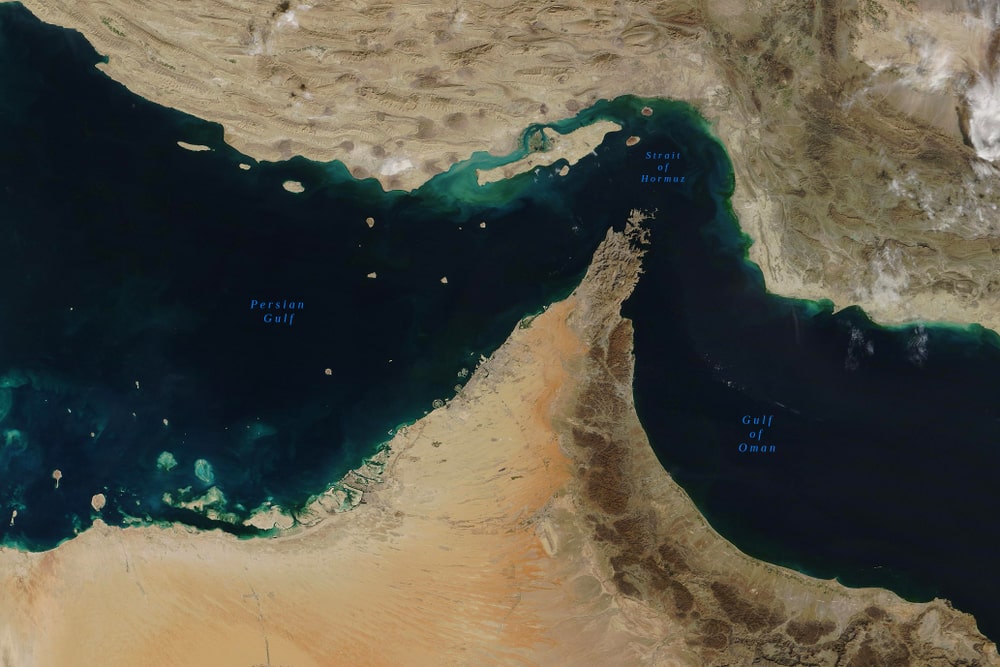
The current tensions in Strait of Hormuz between US and Iran could jeopardise an estimated $227 billion in crude oil exports, impacting many leading economies, including the US, China and India, according to analysis by Russell Group, a data and analytics company.
The Strait of Hormuz is one of the world’s most valuable shipping lanes, with an annual flow of trade of $685 billion according to Russell’s analysis. Crude Oil makes up 69% of the total exports in a year.
The analysis comes after a recent flaring of tensions between the United States and Iran.
Last week, Iran seized Advantage Sweet, a Marshall Islands flagged tanker in the Gulf of Oman that was heading for Houston, under charter by Chevron.
Many believe this was in retaliation for the US seizure of the Suez Rajan, that was believed to be carrying Iranian oil, which was redirected to the United States.
The tensions escalated further, with Iran seizing another tanker, the Niovi, a Panama-flagged tanker that was sailing from Dubai to UAE port of Fujairah yesterday.
There are fears that any escalation in the Strait of Hormuz, which is home to many Gulf oil-producing nations, could have repercussions for the global economy.
Further analysis by Russell shows that the US, China and India would experience some economic damage from any further Iranian escalations in the Strait of Hormuz.
India has the largest exposure, importing an estimated $95 billion in total ship trade (which includes Crude Oil and other commodities), from UAE, Iraq and Saudi Arabia combined.
Meanwhile, China and the US import an estimated $19 billion and $17 billion in commodities every year from Saudi Arabia.
Suki Basi Russell Group MB commented on these figures: “The recent escalation in tensions in the Strait of Hormuz is a worrying sign for all participants in the global maritime, oil and finance supply chain ecosystem.
The Strait of Hormuz is a vital conduit for transporting crude oil to the rest of the world and a huge, connected risk in global supply chains. Key event drivers for Connected Risk are the ways in which political, economic, and environmental stability or supply chain, credit and cyber security risks combine to disrupt trade and cause operational and financial loss.
Organisations are exposed to Connected Risk when they fail to grasp, or disregard, the multi-dimensional nature of business-to-business relationships where a single event could impact firms and disrupt trade. Understanding this interconnectivity is fundamental to navigate trade in a connected economy and to maintain successful and sustainable business performance.”